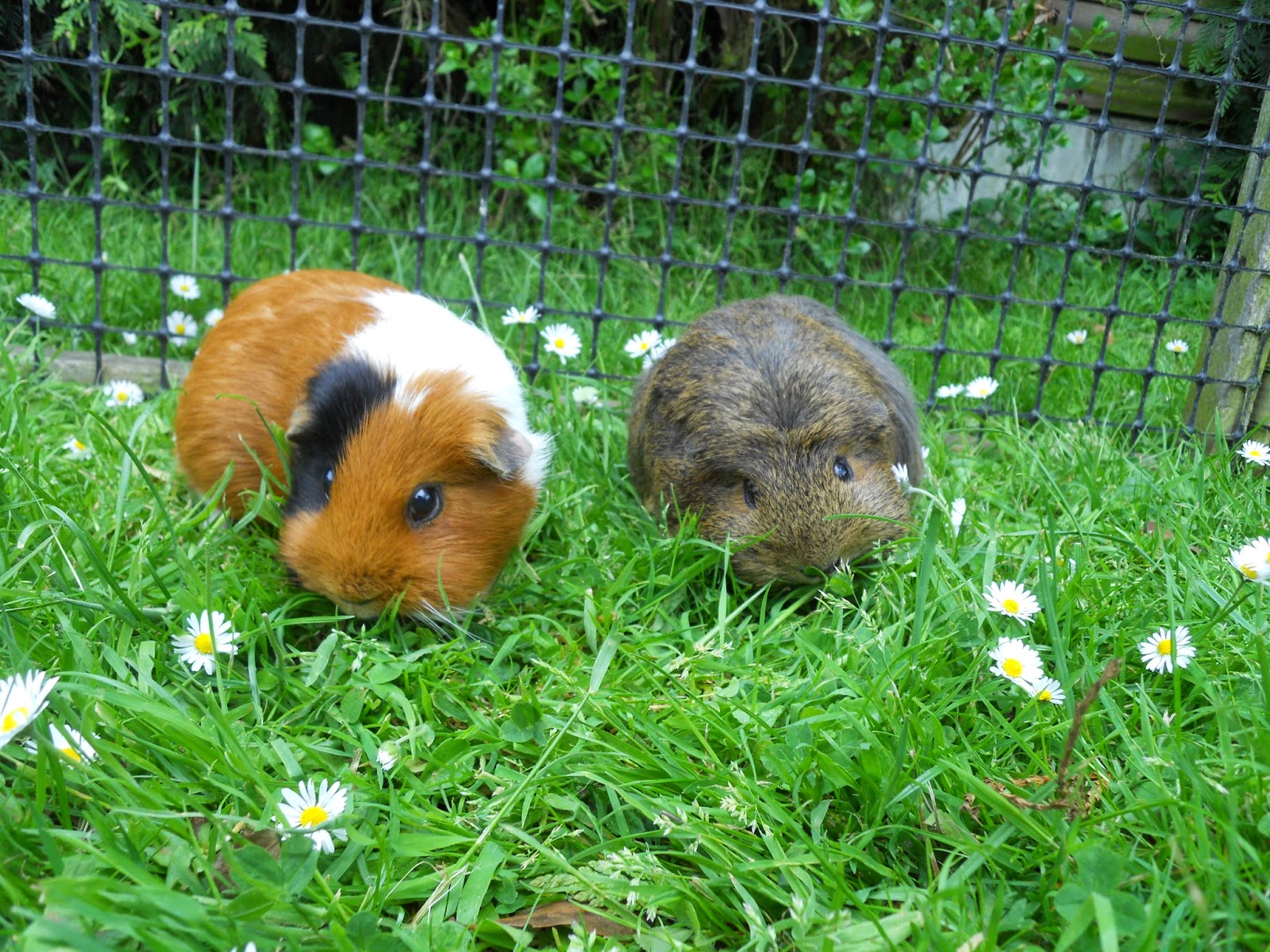This month from April 1- May 5 is National Pet Month and all those who own a pet know that they soon become a vital part of the family. They are there at those important milestones, celebrate the successes in our lives and comfort us when we're upset. What's great about our furry/scaly friends is that they never judge and have an unconditional love for those they are close to in their lives.
There are 13 known guinea pig breeds and these include the Abyssinian, English, smooth coat, silkie and teddy. They are all similar in size, except for the Texel, and are of medium length with large round eyes and a Roman nose. Dependent on their breed, they may have a smooth coat, short hair or long hair and come in a range of colours such as chocolate, beige, silver, golden, brindle, roan, dalmatian or tortoiseshell.
Guinea pigs eat a variety of grass, fruits and vegetables in order to keep healthy, but it is important to ensure they are given extra vitamin C because their bodies cannot produce it themselves. They are one of the few mammals, other than humans, that require extra vitamin C to keep healthy. An adult needs 15-25mg each day, while pregnant females require 30mg. Guinea pigs that are ill or injured can need up to 100mg to help them get better.
Vitamin C can be provided in the form of food pellets which are available in all petshops. These pellets are much better than the normal food mixtures because your pet cannot pick and choose the parts that they like. This way all the food is the same and gives them all the nutrients they need.
Their digestive system breaks down food quickly, so they need to eat almost constantly. In addition, it is important to provide them with hay because this helps to keep their intestines healthy. It also enables them to wear their teeth down and is a good substitute for the plants and grasses that their wild cousins have access to. In addition, they enjoy vegetables including brussel sprouts, red or green peppers, parsley, dandelion and broccoli leaves.
Other foods such as avocado, chocolate, dairy products, iceberg lettuce, meat, onions, potatoes, raw beans and nuts or seeds should be avoided because they can be toxic.
As guinea pigs are prey animals, they can move quite fast. When you go to pick up your guinea pig, always support their legs and spine because they can be prone to back problems. It will also help them to feel secure and so they won't want to leap out of your arms, especially when you take them to and from their hutch!
I've been lucky to have looked after my friend's guinea pigs on a number of occasions and they're always so friendly and happy to see me. Well, especially if food is involved! They are very sociable pets and I love the way they make noises to illustrate their mood.
They are also naturally curious and so it is important to provide them with toys and spend time with them in order to keep them happy.
Fun Fact: Unlike other pets, such as hamsters, guinea pigs are diurnal which means they are awake at the same time as us and they sleep when we sleep. Although, they certainly like to take a nap or two during the day, too!






No comments:
Post a Comment